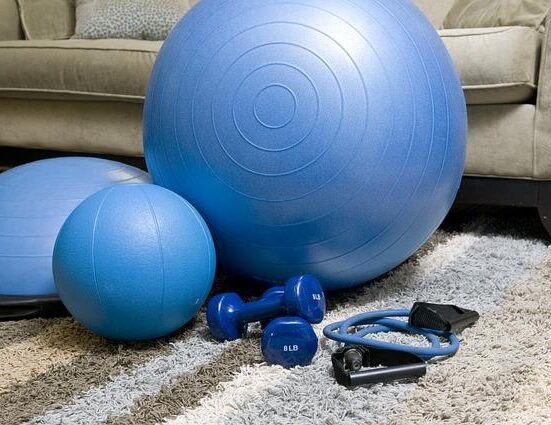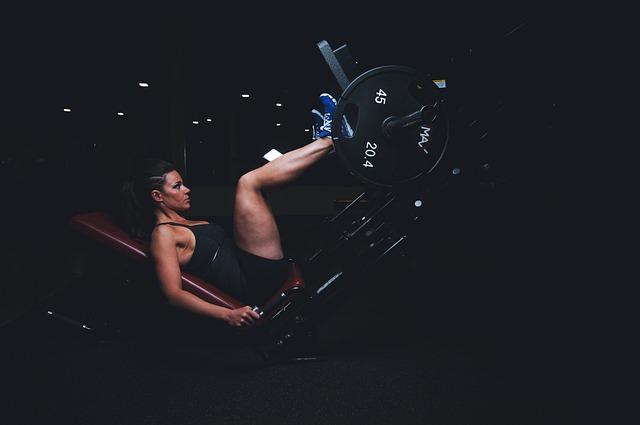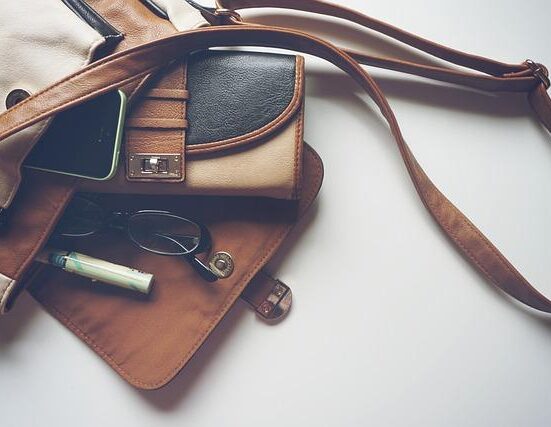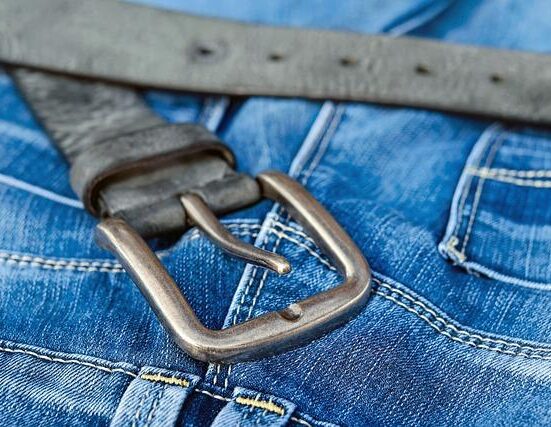Title: Monthly Maintenance Guide for Your Home Gym Equipment
In the realm of fitness, consistency isn’t just about your workouts; it’s about ensuring that your equipment is ready to rise to the challenge, month after month. Just as you commit to your fitness goals, your home gym demands a touch of TLC to work its best. From stubborn treadmills to versatile weights, the machines that help sculpt our bodies also require regular attention to maintain their peak performance. In this comprehensive guide, we’ll explore essential maintenance tips to keep your home gym equipment in top shape, extend its lifespan, and optimize your workout experience. Whether you’re a seasoned fitness enthusiast or just starting your journey, dedicating a little time each month to care for your gear will pay dividends—helping to prevent costly repairs and ensuring that every rep and mile counts. So grab your toolkit and let’s dive into the practical steps that will keep your workouts on track and your equipment running smoothly!
Routine Inspections for Longevity and Performance
Regular inspections can significantly extend the lifespan and enhance the functionality of your home gym equipment. Prioritizing maintenance not only ensures safety but also optimizes your workouts. During these routine checks, be sure to look for the following key elements:
- Frame Stability: Inspect the frame for any signs of rust, cracks, or wear. A sturdy frame is crucial for safety.
- Cables and Belts: Check for fraying or signs of wear. Replace them if necessary to avoid potential malfunctions during workouts.
- Screws and Bolts: Tighten loose components to maintain the integrity of your machines. A simple torque checklist can help you stay organized.
Additionally, consider maintaining a consistent schedule for these inspections by documenting each evaluation. A simple table can serve as an effective record-keeping tool:
| Inspection Date | Equipment | Observations | Next Steps |
|---|---|---|---|
| MM/DD/YYYY | Treadmill | Cables in good condition | Next inspection in 1 month |
| MM/DD/YYYY | Dumbbells | No visible wear | Monitor monthly |
| MM/DD/YYYY | Exercise Bike | Frame stable, minor rust | Clean and repaint |
By implementing a thorough and systematic approach to your equipment inspections, you can proactively address potential issues before they escalate. This not only enhances your workout experience but also saves money in the long run by avoiding costly repairs and replacements.

Essential Cleaning Techniques for Sweat and Grime Removal
To keep your home gym equipment in peak condition, mastering effective cleaning methods is crucial. Start by gathering your cleaning arsenal: a microfiber cloth, warm water, mild soap or a dedicated fitness equipment cleaner, and a soft brush for more stubborn grime. Begin by dusting off any machines and wiping down surfaces with the microfiber cloth soaked in a mixture of warm water and soap. This initial wipe will help lift away sweat and dirt particles that have accumulated during your workouts. Be sure to pay special attention to high-touch areas such as handles and consoles, as they can harbor additional bacteria.
For tougher stains or sweat buildup, particularly on non-porous surfaces like rubber grips or plastic casings, utilize a soft brush to gently scrub away the grime. After scrubbing, a secondary wipe with a clean, damp microfiber cloth will remove any residual soap and grime. Remember to steer clear of harsh chemicals or abrasive materials that could damage the equipment. Regular maintenance will not only preserve the aesthetic of your gym gear but also extend its lifespan and ensure a hygienic workout environment.

Lubrication and Adjustment: Keeping Your Equipment Smooth
To ensure that your home gym equipment operates at peak performance, routine lubrication and adjustment are essential. The friction between moving parts can lead to wear and tear if not addressed promptly. Regularly checking and applying appropriate lubricants will not only extend the lifespan of your machines but also enhance their functionality. Consider the following tips for effective maintenance:
- Identify the Right Lubricant: Use lubricants specifically designed for gym equipment, such as silicone spray or oil. Avoid general-purpose lubricants that may leave residue.
- Inspect Moving Parts: Regularly examine cables, pulleys, and joints for signs of wear, and lubricate as needed to maintain smooth operation.
- Adjust Tension: Ensure that the tension on cables and belts is neither too loose nor too tight, optimizing both safety and efficiency during workouts.
- Document Your Maintenance Routine: Keep a log of when you lubricate and adjust your equipment to create a consistent maintenance schedule.
In addition to lubrication, proper adjustments can dramatically improve your workout experience. Equipment that is improperly calibrated may not only affect performance but could also lead to injuries. Here are some key aspects to focus on during adjustments:
| Equipment Type | Adjustment Focus |
|---|---|
| Treadmills | Incline settings, belt alignment |
| Stationary Bikes | Seat height, handlebar position |
| Ellipticals | Strides length, arm handles |
By following a regimen of lubrication and proper adjustments, you can keep your gym equipment running smoothly and efficiently, leading to a safer and more enjoyable workout environment.

Safety Checks: Ensuring a Secure Workout Environment
Creating a safe workout environment is crucial for maximizing your performance and minimizing the risk of injuries. Regular inspections of your home gym equipment can help ensure everything is in proper working order. Start by assessing the floor space in your gym. Consider the following aspects to improve safety:
- Clear Clutter: Remove any unnecessary items that could cause tripping.
- Check Equipment Stability: Ensure that weights are secured and that equipment is on a flat surface.
- Inspect Cables and Ropes: Look for wear and tear that could lead to breaks during use.
Additionally, it’s important to test the functionality of your equipment on a monthly basis. This includes checking the following:
| Equipment | Check Frequency | Inspection Notes |
|---|---|---|
| Treadmill | Monthly | Lubricate belt and check for unusual noises. |
| Weights | Monthly | Inspect for cracks and ensure weight plates are secure. |
| Exercise Bike | Monthly | Check tension and clean the bike components. |
Taking these proactive steps will not only enhance your workout experience but also keep you and others safe while using your home gym equipment. Remember that a safe workout starts with a vigilant approach to equipment maintenance.
In Retrospect
In conclusion, maintaining your home gym equipment is not just about prolonging its lifespan; it’s about fostering a consistent and enjoyable fitness journey. By dedicating a few hours each month to dusting off machines, tightening bolts, and lubricating moving parts, you are not only ensuring safety but also enhancing your performance. As you establish this monthly maintenance routine, think of it as a ritual that honors your commitment to health and well-being. Embrace the process, and let each check-up inspire you to push your limits even further. After all, a well-maintained gym is a sanctuary of strength, where every rep reflects dedication and every drop of sweat tells a story. Now, roll up your sleeves, grab those cleaning supplies, and get ready to elevate your workout space. Your body—and your equipment—will thank you.














Leave feedback about this